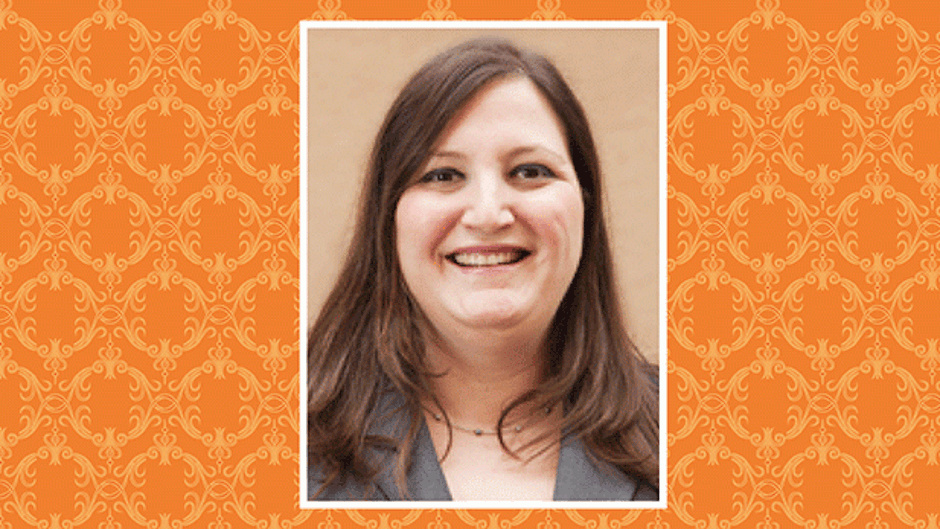Written by: JOSHUA DINETZ
Pamela Itzkowitch, J.D. ’08, knew that she was heading to law school with a commitment to using her skills to serve others. After completing her B.A. in English and Psychology, she originally considered pursuing a Ph.D. in Clinical Psychology. Ultimately, she chose law school, because it would allow her to spend her career providing direct services to clients as an advocate. Miami Law’s substantial public interest resources made it a natural fit for Itzkowitch’s goals and she thrived while in law school. Now an attorney with The Bronx Defenders in New York City, she is continuing her passion for advocating for indigent clients on a daily basis.
Time at Miami Law
While at Miami Law, Itzkowitch combined her background in psychology with her legal studies as an intern for the Miami-Dade Public Defender’s Office, where she worked as a CLI in the Felony and Felony Mental Health Divisions. She also took advantage of opportunities to intern for the Legal Aid Society, Criminal Defense Division, in New York City, and for the Honorable Gill S. Freeman of the Eleventh Judicial Circuit Court.
Her favorite law school experience was taking the late Professor Bruce J. Winick’s Therapeutic Jurisprudence seminar. This course, and therapeutic jurisprudence generally, studied the effects of the law and the legal system on human behavior and mental health. With Prof. Winick, Itzkowitch also had the opportunity to write a paper on recidivism and reentry reform. "These experiences still inform my daily practice, helping me to humanize clients, see each one as a whole person, and remember that each has their own set of issues and life circumstances that an attorney must take into account to truly fulfill her role as a counselor and advocate,” said Itzkowitch.
Post-Graduation
When Itzkowitch graduated in 2008, the bottom had fallen out of the legal market. But she stayed committed to her passion for indigent defense work. She started at a private firm doing document review and interned with the Children’s Law Center in New York, before taking a position with The Nassau County Legal Aid Society. She spent three and a half years there, defending indigent clients, before moving to The Bronx Defenders.
Itzkowitch extolled The Bronx Defenders’ holistic representation model, through which criminal defense, immigration, family defense, and civil attorneys work on practice teams with social workers and investigators to bring an interdisciplinary approach to each client’s needs. Often, when an indigent client comes into contact with the criminal justice system, issues defense attorneys might consider collateral is actually the main issue for the client. A holistic model allows The Bronx Defenders to zealously advocate for the well-being of clients in a way that centers the client’s own experiences and needs.
Direct Services Help Policy Become Reality for Clients
The Bronx Defenders is a leader in advocacy and policy reform measures in New York City. Itzkowitch sees her work, and the work of other attorneys who provide direct client services, as the mechanism by which the broad strokes of policy become a concrete reality in the lives of clients. “When you look at communities and individuals who are marginalized, there is such a huge discrepancy in treatment,” she said. For Itzkowitch, indigent defense is an opportunity to help amplify marginalized voices in the courtroom every day and protect each individual’s right to equal treatment by the legal system. “Our system is one that silences people. It is very personally fulfilling to give people a voice. And I love the interpersonal relationship I develop with a client. These are people we are dealing with, not numbers.”
Advice to Law Students and Future Public Defenders
Itzkowitch reminds students that indigent defense is not always easy and is very often thankless work. When an attorney stands between her client and the system, sometimes she takes on their trauma and pain, which can be difficult. Despite all this, Itzkowitch emphasizes that, for those who are committed to the work, it is well worth it. “You are protecting human beings and the Constitution,” Itzkowitch said. These are the fundamental values of our society. In Itzkowitch’s own words it is “the most important and rewarding work.”
More on Public Interest at Miami Law
Interested in this kind of work? Consider a Social Justice & Public Interest Concentration

